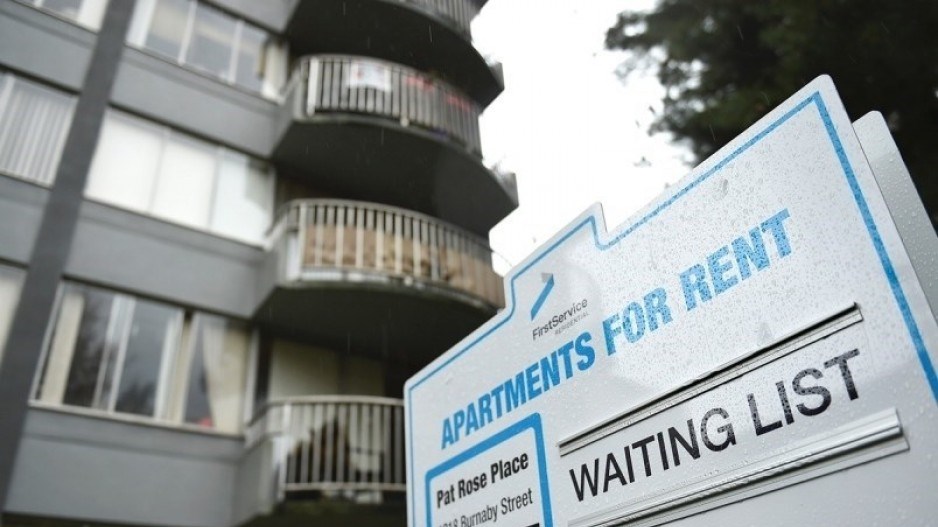The federal government announced Monday that it will spend $517 million over 10 years in B.C. to help more than 25,000 low-income households unable to make a monthly rent payment or secure an apartment.
The money, which will be administered by B.C. Housing and nonprofits, could mean a rent supplement for eligible recipients ranging from $2,500 to $7,000 a year, according to Ahmed Hussen, the federal minister responsible for housing.
“Some provinces will choose to use the federal investment and target particular populations,” said Hussen at an online news conference to announce the British Columbia Housing Benefit.
“In those cases, the benefit [would be] more narrower in terms of the populations that are targeted, but deeper in terms of the amount. So even though we estimate $2,500 a year [across Canada], in some provinces it's as high as six to $7,000 a year to help individuals access rental units.”
In providing an example of how the benefit could be used, Hussen said a person living in a shelter with some money — but not enough for rent — could use a ‘top-up” to secure an apartment.
“Some individuals may use this benefit just to pay first and last [month’s rent] and then they take it from there,” he said. “Some families who are more vulnerable may use it for a year, others may use it for a longer period of time.”
The minister said the funding creates “a double benefit” in that it secures a person or family a place to live while clearing more space in shelters and supportive housing to make room for people living on the street.
David Eby, B.C.’s Attorney General and Housing Minister, joined Hussen at the virtual news conference from Victoria. Eby did not provide an estimate of how much each recipient will receive in B.C., but said the federal money fills a gap in the provincial government’s current rental assistance programs — Shelter Aid for Elderly Renters and the Rental Assistance Program — which were implemented in 2018.
“This program from the federal government amplifies and extends that work to even more families across the province,” said Eby, noting the program’s recipients will include women and children experiencing or at risk of domestic violence, Indigenous peoples, racialized communities, veterans, youth leaving care, people with disabilities and people experiencing or at risk of homelessness.
Hussen said the program has “a matching element” to it, but didn’t elaborate on the funding arrangement with the B.C. government. He noted eight other provinces and two territories had signed agreements with the federal government to roll out the program.
Monday’s announcement comes after Glacier Media posted a story March 5 that revealed the Vancouver Rent Bank has seen a significant increase in demand for financial assistance related to the fallout from the pandemic.
The increase in demand was most significant last March when 133 requests for financial aid were filed over 11 days. That volume compares to 41 for the entire month of March in 2019.
The demand has continued into 2021, with 15 enquiries over eight days in February, despite provincial and federal government support programs put in place over the last year to help Canadians hit financially hard by the pandemic.
The Tenant Resource and Advocacy Centre, or TRAC, also reported an increase in enquiries during the pandemic, with evictions top of mind for many renters, said lawyer Robert Patterson, a TRAC legal advocate.
The B.C. government imposed a temporary eviction ban for non-payment of rent from mid- March 2020 to mid-August 2020. The lifting of the ban in August has left many renters in arrears and unable to pay back their landlords, despite the government’s repayment plan.
“Because there’s no forgiveness of those arrears, they have to pay that back, and if they don’t they can be evicted,” said Patterson, noting the period for renters to pay back rent began October 2020 and ends July 2021.
Last week, Vancouver Mayor Kennedy Stewart announced that the city purchased the Days Inn motel on Kingsway. The mayor said it will be renovated so up to 65 people living in shelters and single-room-occupancy hotels can move in by November.
The price paid for the two-star motel at 2075 Kingsway was not disclosed but funding came from $51.5 million the federal government promised Vancouver in October 2020 under a national fund called the Rapid Housing Initiative.
Also last week, the city announced that Gil Kelley, the city’s planning director, approved a development permit to build 98 new temporary modular homes at 1580 Vernon Drive. The homes will be split between two buildings, which will include supports for health care and other tenants’ needs.
City staff’s most recent estimate is that 750 people are living on the streets in Vancouver, with 200 residing in the Strathcona Park tent city. The population doesn’t include more than 1,200 others counted in March 2020 who were residing in some form of shelter.
Glacier Media reported Feb. 10 that Vancouver will not conduct a homeless count this month for reasons related to the pandemic and public health orders.
@Howellings




